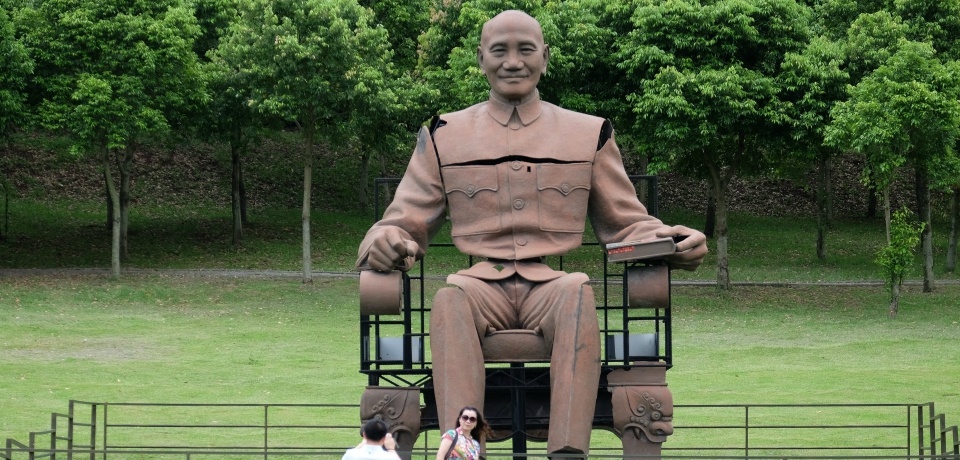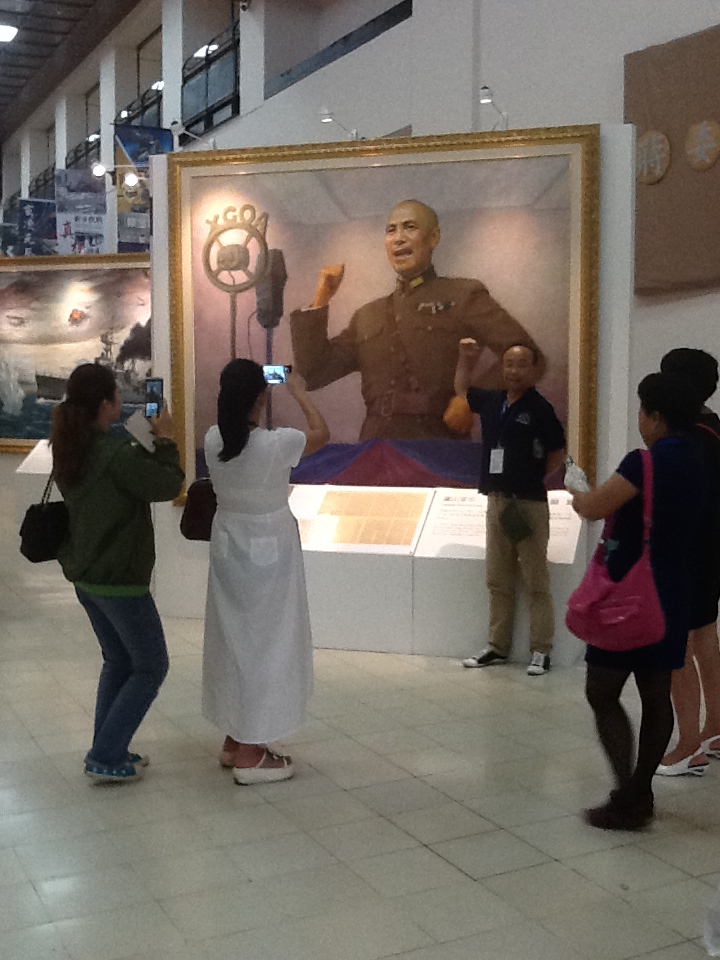
CHINA AND TAIWAN: STEALTHY SUASION
Is China taking over Taiwan by stealthy suasion? Cross-strait relations have never been better. Some 5 million mainland tourists visit Taiwan each year. And a million Taiwanese now live on the mainland. The situation seems stable and beneficial, with economic growth resulting for both sides.
With Taiwan's presidential election coming up in January, China has gone so far as to partially rehabilitate the image of controversial Chinese Nationalist leader Chiang Kai-shek, but as Pulitzer Center grantee Richard Bernstein reports in this dispatch for Foreign Policy, the Taiwanese are not buying it.
According to Richard, one reason for incumbent President Ma Ying-jeou's unpopularity "is the widespread suspicion that his eagerness to build ties with the mainland has made Taiwan too susceptible to China's influence."
Richard, whose latest book, "China 1945: Mao's Revolution and America's Fateful Choice," has been widely praised, notes that "senior officials of both parties affirmed themselves in favor of what's called 'the status quo'—no independence, no unification, and no use of force—meaning no use of force by Beijing to bring about unification."
WHAT PUTIN IS UP TO
With attention diverted by the growing refugee crisis in Europe and the upcoming Congressional debate on the Iran nuclear agreement, Pulitzer Center Senior Advisor and veteran broadcast journalist Marvin Kalb notes that "a deceptive late-summer pause" has settled upon the crisis in Ukraine.
"Who fired first is no longer a relevant question. The point is that the war stumbles along with no end in sight. The twin rebel 'republics' of Donetsk and Luhansk have slowly frozen into a Russian stronghold, effectively detached from the rest of Ukraine. They are always available to be manipulated as a pro-Russian weapon in the East-West battle for Ukraine's future," writes Marvin in this analysis for the Brookings Institution, republished in Newsweek.
So what will Putin do next? U.S. officials "realize that Putin—once a KGB colonel, now a modern Peter the Great (with a smidgen of Stalin)—is still capable, if he chooses, of throwing Europe and the world into a Cold War-style confrontation," says Marvin. "If left unchecked, that could quickly dominate not only newspaper headlines but also global calculations about war and peace."
Marvin, who had a related op-ed in today's Washington Post, is the author of "Imperial Gamble: Putin, Ukraine and the New Cold War," to be published later this month by Brookings.
THE JOURNEY ACROSS GENDER LINES
Growing up as a boy, her father wanted her to be a soldier—like him. When she rebelled, he beat and verbally abused her. Kritchaya "Lolita" Boonhor, now 24, is a transgender woman and an aspiring fashion model who is attracting notice for both her striking looks and personal courage in the U.S. and her native Thailand.
"My father prefers physical assault as he is a soldier—slapping, squeezing my neck. He was very bad tempered. He attacked me, and I hated him so much when I was a child," Boonhor told Pulitzer Center student fellow, American University graduate Julia Boccagno, for this profile in Huffington Post. "There was one time he found my girl clothes and saw a picture of me dressing like a girl on my phone…He was angry. He told me if I don't stop acting like this, he would kick me out of the house. His words hurt so much."
But Boonhor persevered. She studied hard, excelled at school and continued the lonely journey to her true identity. After a European fashion photographer took a picture of her that went viral, she won a modeling contract in the U.S. More importantly, her father has come around. "Being a model makes my father proud," she says. "He's a soldier, but he's now learning about fashion."
ENGAGE WITH OUR EDUCATIONAL RESOURCES
The Pulitzer Center's video team has been hard at work this summer documenting what we do in and out of traditional classrooms. If you're looking for inspiration this school year, check out the work educators and young people—including over 20,000 Boy Scouts—have been doing around two projects, Everyday Africa and the Out of Eden Walk, and learn more about how students at one Philadelphia high school make global issues local in their Social Justice Days. Want to learn about our education programming? There's a video for that, too, or you can e-mail us at [email protected].
Until next week,
Tom Hundley
Senior Editor







